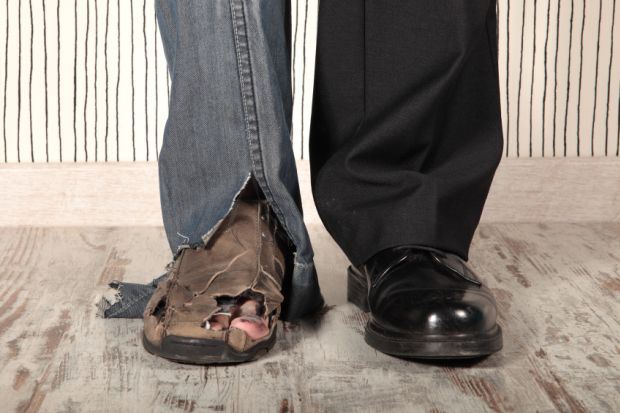Declining student income support has spawned an epidemic of “hidden discrimination” in Australian universities, where some are free to focus on study while others are too busy supporting themselves to get to class.
Australian National University (ANU) chief Brian Schmidt said increasing numbers of his students were skipping lectures as they worked “more and more” hours. “They’re telling me, it’s not reasonable for you as vice-chancellor to require me to go to class,” he told the Universities Australia (UA) conference.
“If you don’t have to work, you have a much better student experience than [those] who are working two or three jobs and trying to do a full load [of studies] on top of it.”
Professor Schmidt said students’ struggles with living costs had become so pervasive that solutions were hard to envisage. He said universities needed to find ways of fixing the problem themselves, but lacked obvious options other than philanthropically funded scholarships.
“I think about having students do a lot of the jobs on the university, as part of a support package,” he said. “I can’t afford my information technology graduates once they graduate, but I can afford them when they’re [still here]. But doing that in an equitable way is actually really hard.”
He stressed the need for emergency funding for students in dire straits. “Keeping people on the field of play is really important,” he said. “A three-week debt burden ends up in a lifetime of disadvantage.”
Higher education policy expert David Phillips said students often found themselves in a financial bind. “A very small amount of money for a short period will keep them enrolled,” he told the conference. “Otherwise they’ll drop out.”
He said the quantum of income support provided in Australia had declined by about 20 per cent over the five years to 2019, even though the number of domestic full-time undergraduates - including those from underprivileged backgrounds - had risen by several percentage points over that period.
ANU policy specialist Andrew Norton said the decline had partly been triggered by 2011 rule changes designed to eliminate a loophole which had allowed people from affluent backgrounds to claim benefits as “independent” students, despite living in their family homes.
But Professor Norton speculated that many potentially eligible students were simply relinquishing their right to income support by taking part-time jobs. “The amount you get is so low that you can’t survive on it anyway,” he said.
Mr Phillips said administrative problems made it “just too difficult” for some eligible students to collect payments. He said there were no “easy” or cost-free solutions to the income support crisis.
“We could look to models from other countries and allow greater access to income-contingent loans for [student] support purposes, but I’m loathe to suggest that. The moment that policy arc is opened up, it’s an excuse for the government to cut grants.”
UA chief executive Catriona Jackson said public attitudes to financially struggling students had become “much more sympathetic”, with fewer people assuming that students squandered all their money at bars.
She said many students were going without meals as they tried to subsist on around A$18,000 (£9,130) a year, a level of income “significantly” below the poverty line. “This doesn’t mean no beer or chips down at the pub. It means breakfast, lunch or dinner.”
Register to continue
Why register?
- Registration is free and only takes a moment
- Once registered, you can read 3 articles a month
- Sign up for our newsletter
Subscribe
Or subscribe for unlimited access to:
- Unlimited access to news, views, insights & reviews
- Digital editions
- Digital access to THE’s university and college rankings analysis
Already registered or a current subscriber? Login










